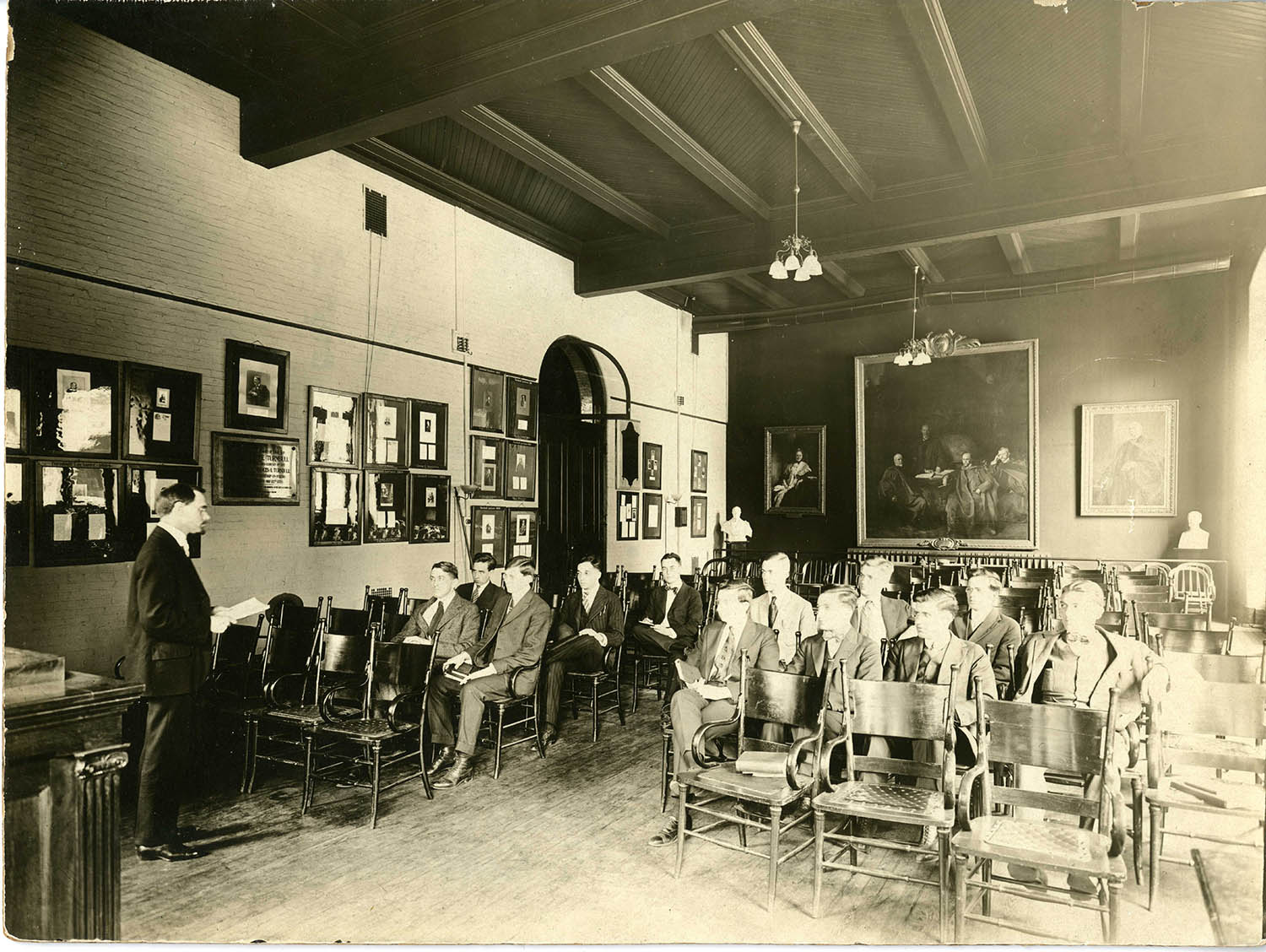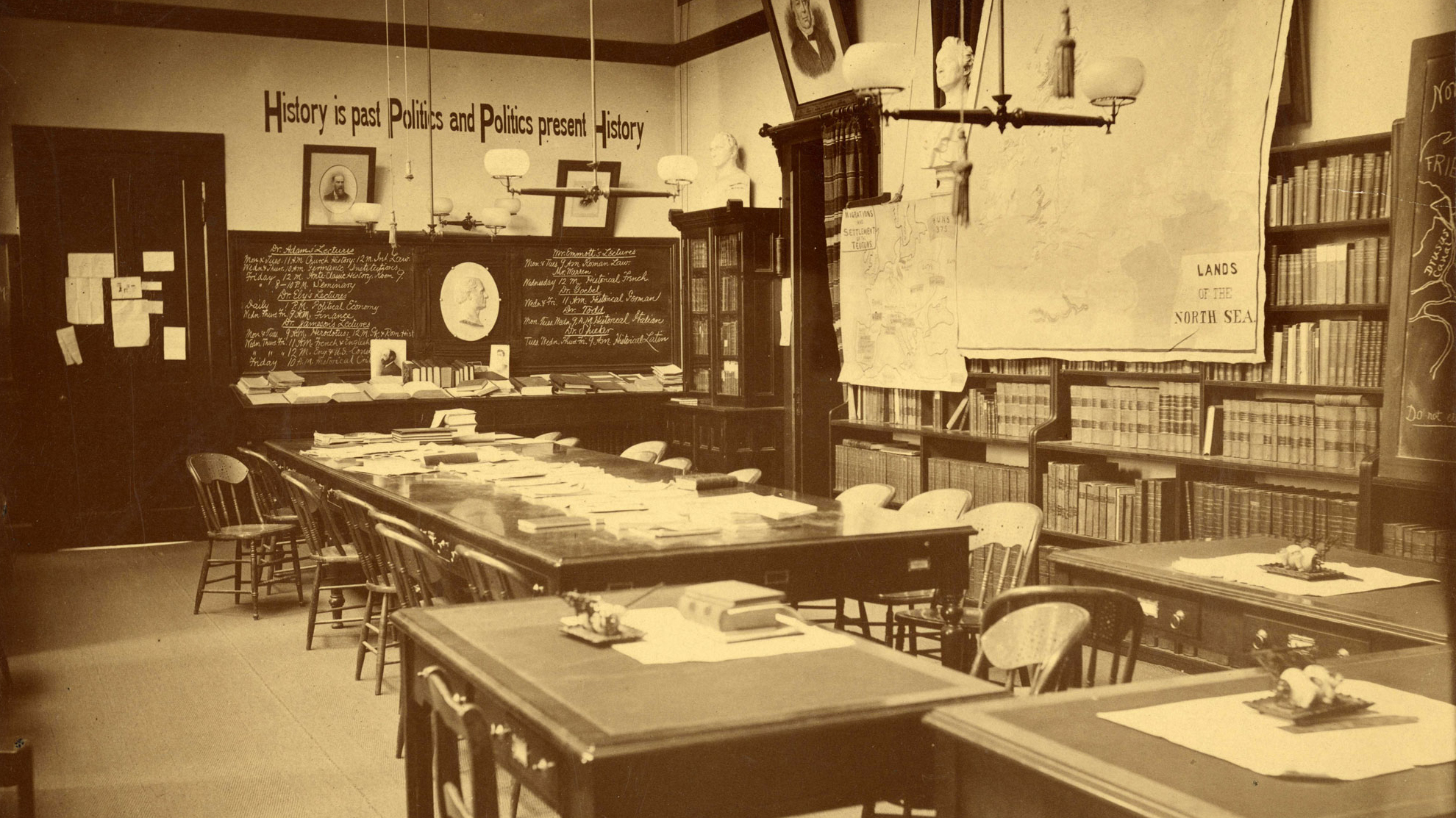Thought Pioneers
Since its founding in 1876 as America’s first research university, Johns Hopkins has been transforming the way we envision the world. Its faculty members frequently push the boundaries of their fields—and, in some cases, even establish them.Johns Hopkins University’s founding president Daniel Coit Gilman establishes the Johns Hopkins University Press, which is today the nation’s oldest continuously running university press.
"It is one of the noblest duties of a university to advance knowledge, and to diffuse it not merely among those who can attend the daily lectures—but far and wide."- Daniel Coit Gilman Learn More

Sir William Osler, the first professor of medicine at Johns Hopkins, transforms the way medicine is taught and practiced

Dr. Florence R. Sabin becomes the first female full professor on the faculty of the School of Medicine.
Philosophy professor Arthur Oncken Lovejoy founds the discipline known as the history of ideas.
"Next to the word ‘Nature,’ the ‘Great Chain of Being’ was the sacred phrase of the 18th century, playing a part somewhat analogous to that of the blessed word ‘evolution’ in the late nineteenth."- Arthur Lovejoy (1936), The Great Chain of Being Learn More

Child psychiatrist Leo Kanner establishes the nation’s first child psychiatry clinic at Johns Hopkins.
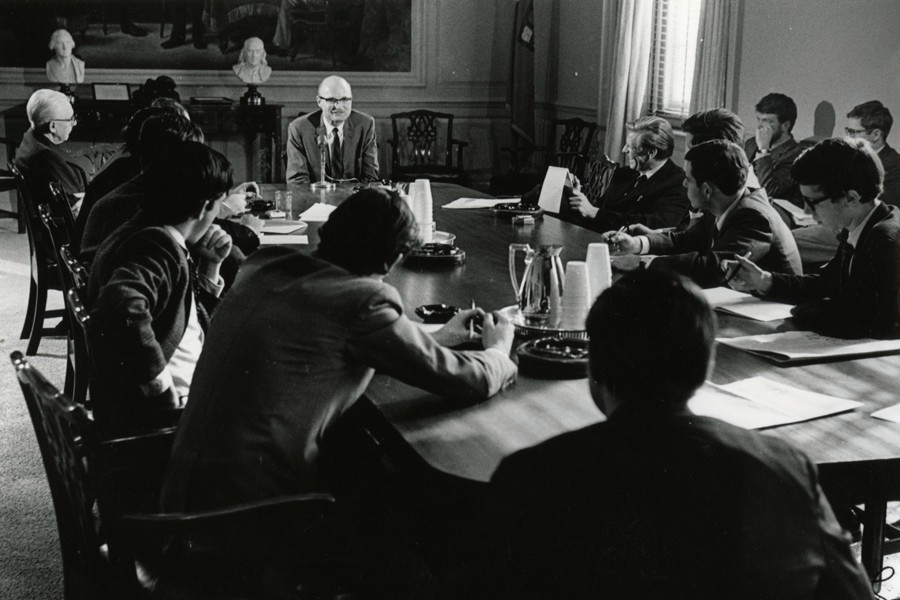
The Johns Hopkins Writing Seminars, one of the nation’s oldest and most celebrated creative writing programs, is founded.

William Foxwell Albright, Johns Hopkins Semitic languages professor, authenticates the Dead Sea Scrolls

Environmentalist Rachel Carson, who earned a master’s degree from JHU, becomes one of the most influential writers of her time with her books The Sea Around Us (1951) and Silent Spring (1952).
Pioneering geneticist Victor McKusick publishes Mendelian Inheritance in Man, a genetic knowledge base that serves clinical medicine and biomedical research, including the Human Genome Project.
"I suggested that an approach to solving birth defects and genetic disorders in general would be to map all of the genes."- Victor A. McKusick Learn More

Humanities Professor Richard A. Macksey helps found the Johns Hopkins Humanities Center as a meeting ground and incubator for problems, ideas, and discussions across disciplines.
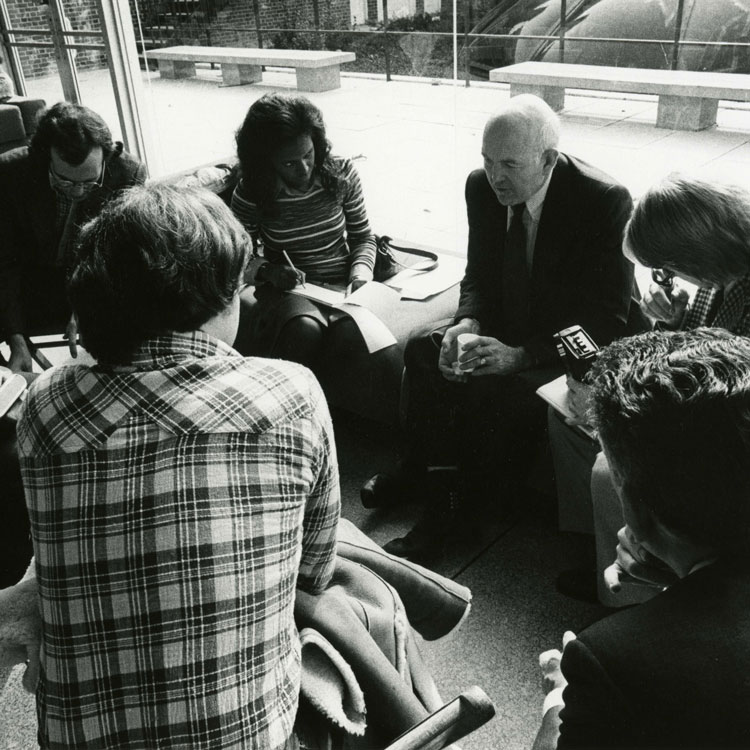
Johns Hopkins sociologist James Coleman helps conduct and publish the first large-scale research study of conditions of inequality in American schools.
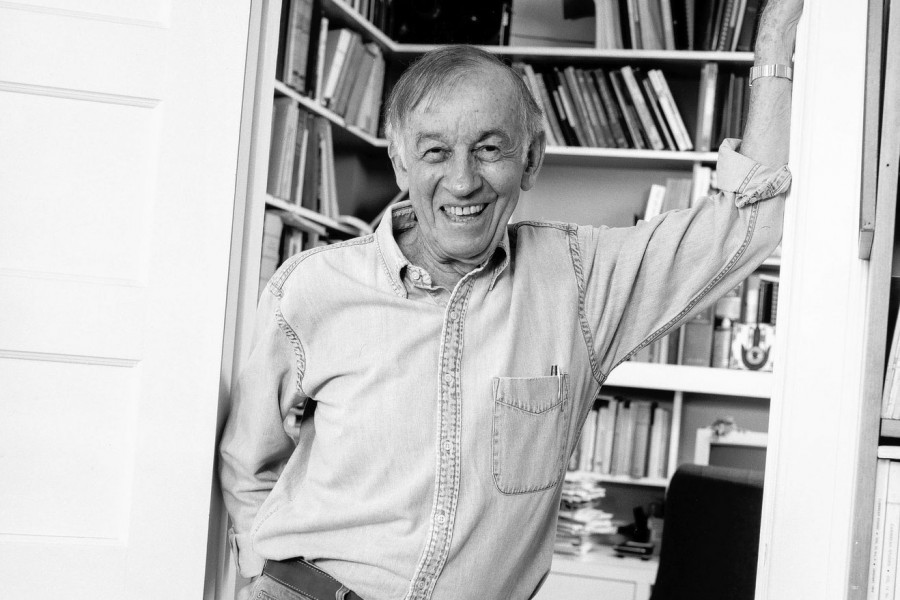
Anthropology Professor Sidney Mintz helps found the Anthropology Department at Hopkins.
Psychology Professor Julian Stanley founds the Johns Hopkins Center for Talented Youth and promotes testing nationwide to identify academically gifted children.
"Bright kids have a hunger for academics. They're getting turned off by material in school that's not at the right level for them."- Julian Stanley Learn More
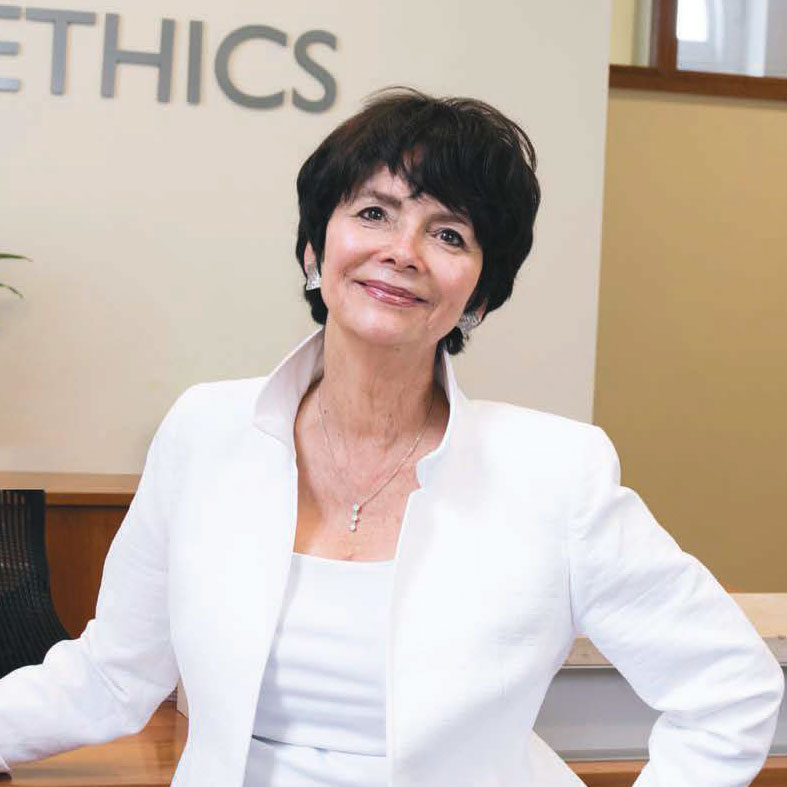
Ruth Faden becomes the founding director of the Johns Hopkins Berman Institute for Bioethics.
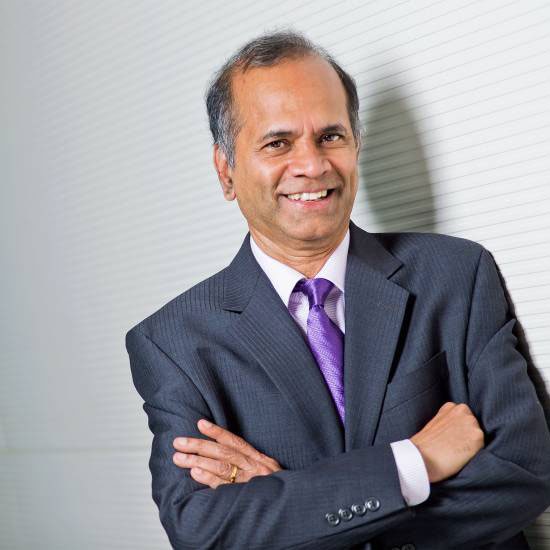
Rama Chellappa, a pioneer in the fields of artificial intelligence and facial recognition, joins the Johns Hopkins faculty.
The power and promise of AI
A state-of-the-art data institute on the Homewood campus will bring together world-class experts in artificial intelligence, machine learning, applied mathematics, computer engineering, and computer science to fuel data-driven discovery in support of research activities across the institution.
“Data and artificial intelligence are shaping new horizons of academic research and critical inquiry with profound implications for fields and disciplines across nearly every facet of Johns Hopkins,” JHU President Ron Daniels says. “I’m thrilled this new institute will harness our university’s innate ethos of interdisciplinary collaboration and build upon our demonstrated capacity to deliver impactful research at the forefront of this critical age of technology.”
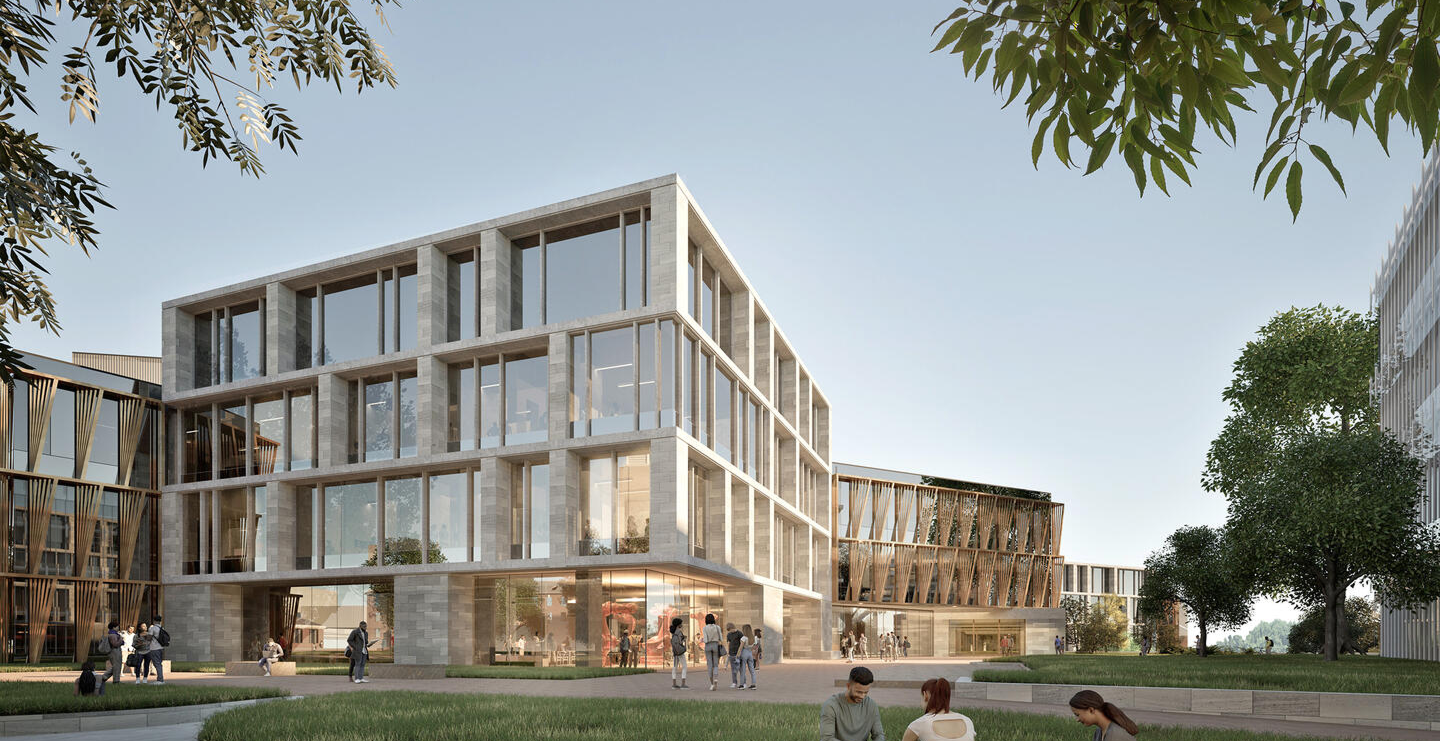
The home of the university's Data Science and AI Institute is expected to be completed by summer 2029 on the Homewood campus. Credit: Rendering courtesy ZGF (January 2025)
Calls to Action
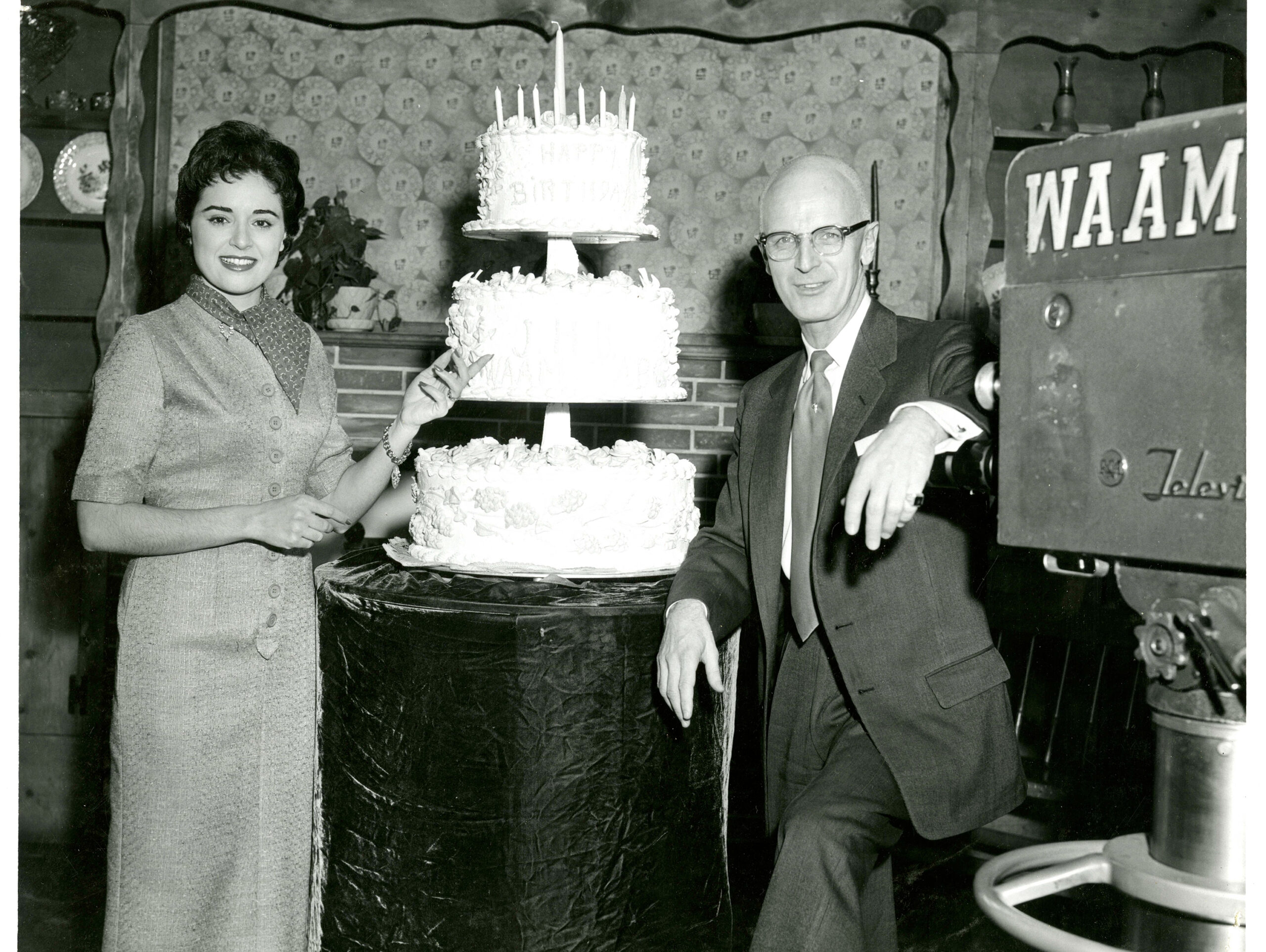
Join the Celebration
For 150 years, we’ve been breaking new ground—now, let’s celebrate it. Join us for gatherings, lectures, and special events that honor our legacy and look ahead. Details on future events are coming soon.
Learn more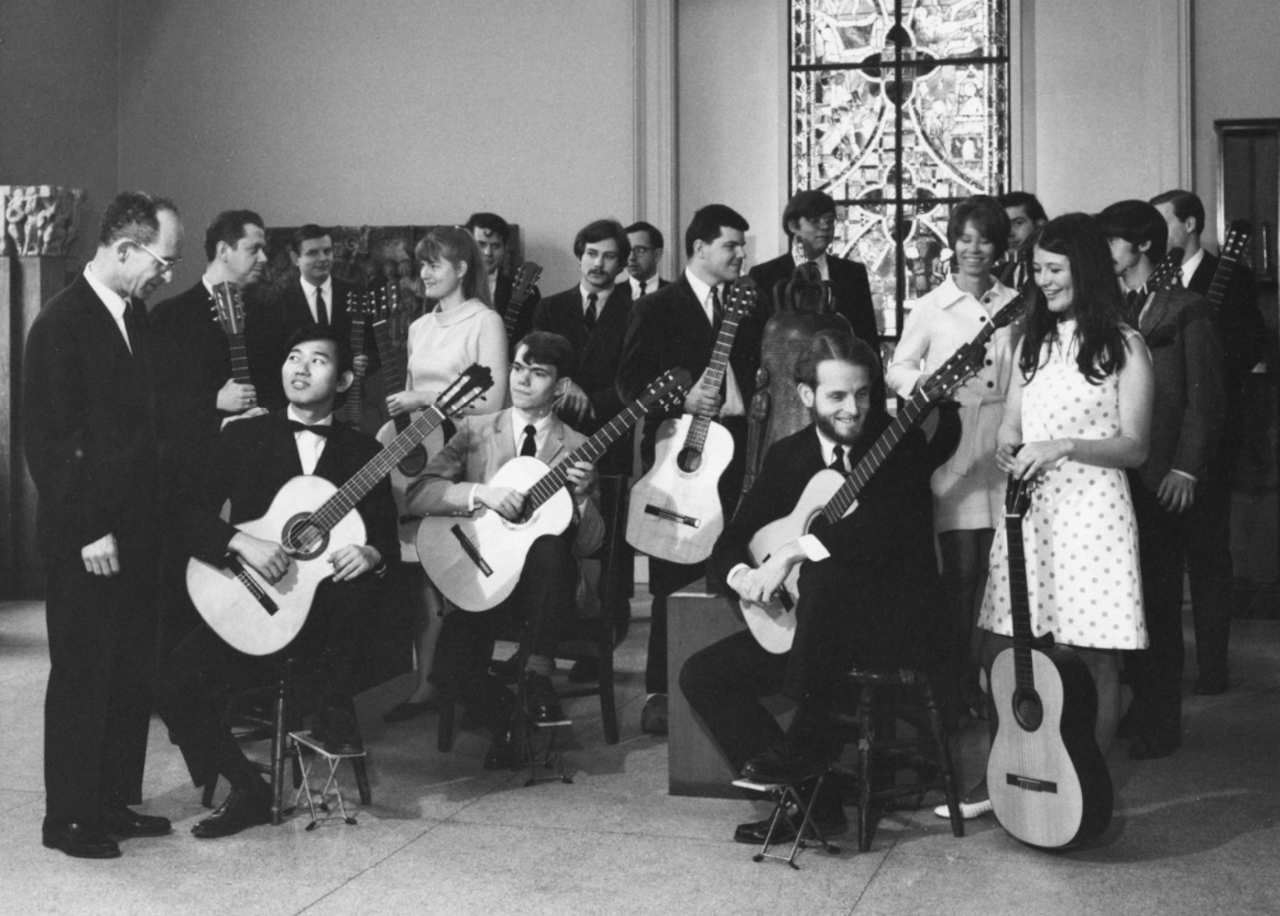
Hopkins Retrospective
Hopkins Retrospective is an initiative designed to expand our understanding of the diverse history of Hopkins and weave that history into the university experience.
Learn more